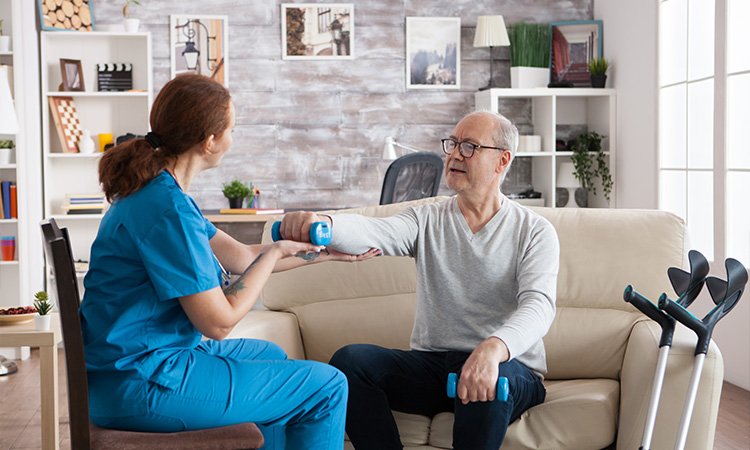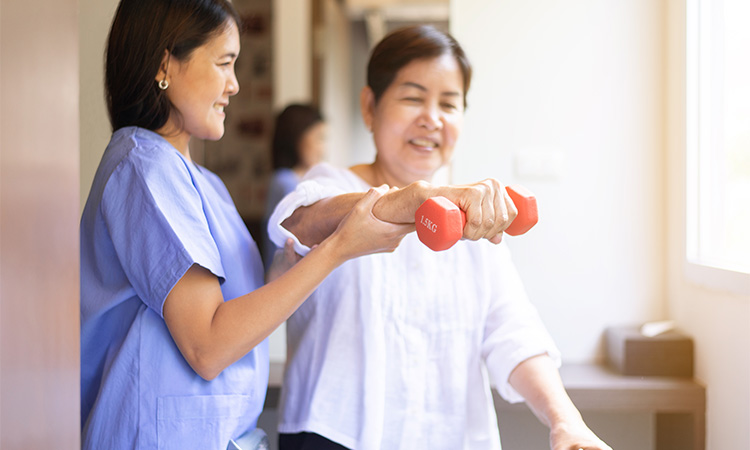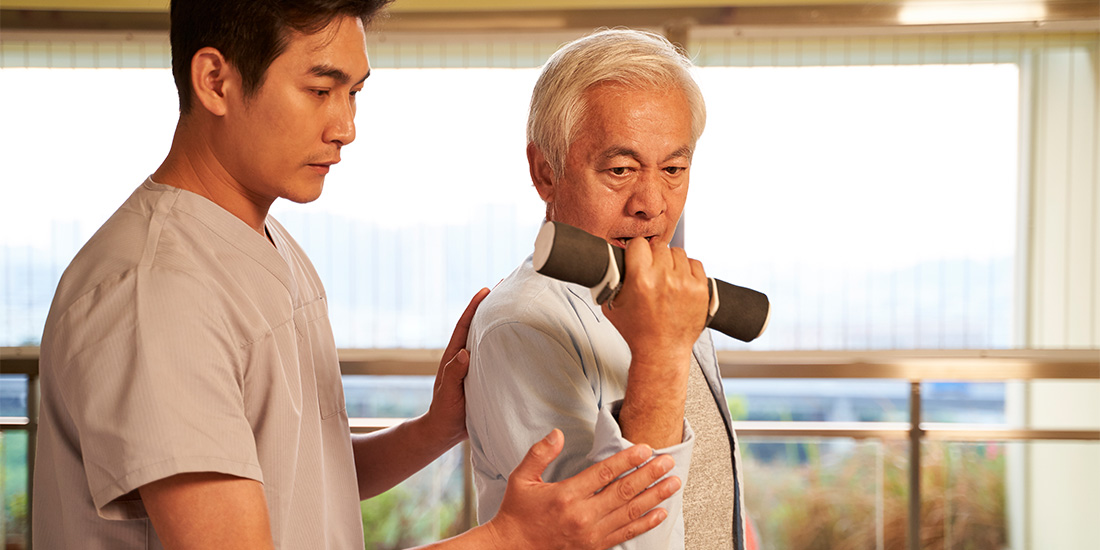Key Takeaways:
1. Physiotherapy helps older adults maintain mobility and confidence, especially for those who are bedbound. It supports everyday functions like walking, standing, and participating in activities with greater ease.
2. Recovery after illness or surgery can be strengthened through structured movement, helping residents transition more smoothly from hospital care to daily life in a residential setting.
3. Emotional well-beingis supported through routine, movement, and connection, with physiotherapy offering both physical and psychological benefits.
4. Personalised therapy plans ensure each resident receives care that suits their unique needs, encouraging greater independence and a higher quality of life.
Introduction
As our loved ones grow older, their care needs can change in ways that feel both gradual and deeply personal. It may be due to a fall, a health condition, or simply a natural slowing down that comes with age. During this time, many families begin to look for gentle, practical support that can help their parent or relative stay strong, comfortable, and independent.
Physiotherapy plays a vital role in this journey. In a nursing home setting, it is not just an added service. It becomes part of everyday care that supports movement, confidence, and overall well-being. In private nursing homes in Singapore, physiotherapy is often part of a broader approach to caring for older adults, one that respects individual needs and encourages a life filled with dignity and purpose.
Here is a closer look at why physiotherapy matters in elderly care and how it helps residents stay engaged, supported, and active in ways that are meaningful to them.
Physiotherapy in Elderly Care Improves Mobility and Builds Confidence
Mobility can become more challenging with age, especially for those living with chronic conditions such as arthritis, osteoporosis, or stroke-related effects. For residents who spend much of their time in bed, long periods of inactivity can lead to further decline in strength, balance, and flexibility. Without regular movement, complications such as muscle weakening, joint stiffness, or poor circulation may also arise
Physiotherapy offers a safe and supportive way to address these concerns in a nursing home setting. Sessions are tailored to each resident’s condition and comfort level. This may include light stretching in bed, guided joint exercises, strength-building routines, or assisted walking, all aimed at maintaining physical stability and preventing secondary health issues.
Even small improvements in movement can have a positive impact. As residents regain confidence in their abilities, they often feel more engaged and uplifted. Physiotherapy supports them in taking part in daily routines with greater comfort and ease, helping to preserve their independence and overall sense of well-being.
Physiotherapy Aids Recovery and Smooths the Transition After Hospital Stays
After hospitalisation or surgery, many older adults may feel physically weakened and unsure of what comes next. In a nursing home environment, physiotherapy provides structured support that helps ease this transition. It promotes healing, restores mobility, and gently guides residents back into daily routines at a pace that suits their needs.
For those receiving transitional care services in Singapore, physiotherapy plays an essential role in bridging the gap between hospital care and long-term support. At Orange Valley, therapy is integrated from the start as part of each resident’s personalised plan. This early support helps reduce the risk of complications from immobility while restoring strength, confidence, and a sense of routine.

Guided Physical Therapy Supports Emotional Well-being Through Movement
Physical and emotional health are closely linked, especially in later life. Gentle movement improves circulation, relieves stiffness, and supports the release of mood-lifting hormones. In a nursing home setting, physiotherapy in elderly care becomes more than just a physical routine. It offers residents a sense of purpose, structure, and connection.
As an essential part of senior care, physiotherapy also supports emotional well-being. When sessions are delivered in a caring and familiar environment, they provide comfort, continuity, and encouragement. Many residents come to enjoy these moments in their day, not only for the activity itself but also for the interaction and confidence they bring. For those adjusting to long-term care, physiotherapy helps ease feelings of isolation and supports a more balanced emotional state.
Physiotherapy Is Tailored to Support Each Resident’s Unique Journey
At Orange Valley, we recognise that every resident has different health needs, mobility levels, and personal goals. That is why physiotherapy is thoughtfully integrated into our rehabilitation care. This approach offers the flexibility to adapt therapy sessions based on individual recovery plans, ongoing conditions, or specific movement challenges. Whether the focus is on regaining strength or maintaining mobility, each resident receives support tailored to their abilities and pace.
This personalised approach is one of the strengths of receiving care in a residential setting that prioritises individual attention. Whether a resident benefits from more intensive rehabilitation or requires gentle, consistent support, our therapists create care plans that encourage steady progress while honouring each person’s comfort and pace.
Physiotherapy in Elderly Care Encourages Independence in Daily Life
Even minor improvements in movement can have a significant impact on how older adults experience daily life. Being able to walk to the dining area, join in light activities, or move safely from bed to chair helps restore a sense of independence and self-confidence. In a residential care setting, physiotherapy supports these everyday goals, helping residents stay active and engaged in ways that matter to them.
This is especially valuable for those adjusting after a hospital stay. With the proper guidance and consistency, physiotherapy can ease the transition into long-term care, reduce reliance on others, and encourage each resident to take steady, supported steps toward recovery and comfort.

Moving Forward with Comfort, Confidence, and Care
Physiotherapy in elderly care goes beyond physical recovery. It supports older adults in living with greater comfort, dignity, and independence. In a nursing home setting, it forms part of a broader care philosophy that honours each resident’s ability to stay involved in daily life in a way that feels right for them.
At Orange Valley, we believe movement can be empowering. Our personalised care plans are designed to help residents regain strength, rebuild confidence, and find renewed enjoyment in everyday routines.
To find out how physiotherapy fits into our approach to caring for older adults, contact us to explore your options today.
